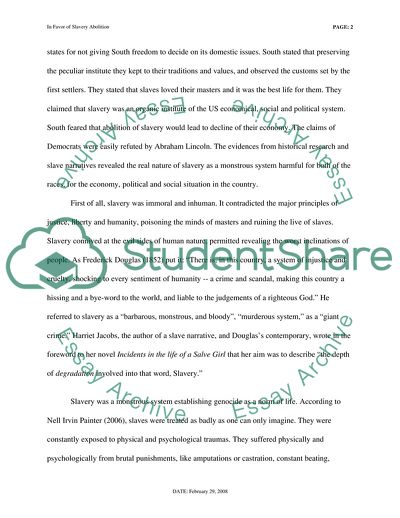Cite this document
(In Favor of Slavery Abolition Term Paper Example | Topics and Well Written Essays - 2250 words, n.d.)
In Favor of Slavery Abolition Term Paper Example | Topics and Well Written Essays - 2250 words. https://studentshare.org/history/1712252-in-favor-of-the-abolition-of-slavery
In Favor of Slavery Abolition Term Paper Example | Topics and Well Written Essays - 2250 words. https://studentshare.org/history/1712252-in-favor-of-the-abolition-of-slavery
(In Favor of Slavery Abolition Term Paper Example | Topics and Well Written Essays - 2250 Words)
In Favor of Slavery Abolition Term Paper Example | Topics and Well Written Essays - 2250 Words. https://studentshare.org/history/1712252-in-favor-of-the-abolition-of-slavery.
In Favor of Slavery Abolition Term Paper Example | Topics and Well Written Essays - 2250 Words. https://studentshare.org/history/1712252-in-favor-of-the-abolition-of-slavery.
“In Favor of Slavery Abolition Term Paper Example | Topics and Well Written Essays - 2250 Words”. https://studentshare.org/history/1712252-in-favor-of-the-abolition-of-slavery.


